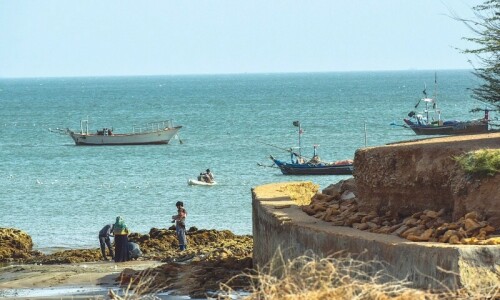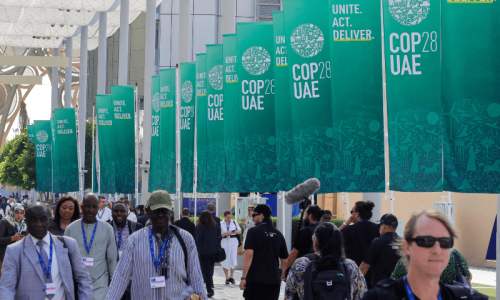DUBAI: The government envisions the establishment a new inter-agency data-sharing system to improve accessibility to information platforms that can help promote climate resilience in Pakistan’s cities.
This was revealed by Awais M. Sumra, federal secretary for Planning and Development, at a discussion on ‘Using data to build climate resilient cities in Pakistan’, held at the Pakistan Pavilion on the sidelines of the COP28 summit in Dubai, last week.
He said this will involve creating a new, centralised entity with the mandate to acquire, store or stream all available data from relevant agencies (such as the Met Office, Indus River System Authority or Wapda), or empowering existing agencies within their jurisdiction to manage data acquisition and dissemination.
Speaking at the discussion, Dr Asim Zia from the University of Vermont pointed out that the first-generation of multi-hazard early warning systems primarily focused on communicating flood or drought forecasts to government agencies or the public, but did not include information on early action or anticipatory action.
“It is critical to include early warning and early action in short-term planning as well as long-term planning,” he added.
Dr Zia pointed out that while there were some good examples of data-sharing, e.g., PMD with Wapda, Irsa and the Indus Commission to generate short to medium-term flood forecasts, in many cases, data flow was non-existent or non-operational.
He suggested that crowdsourcing technologies and citizen/community science approaches by deploying sensors can provide critical data for model calibration and validation to forecast air quality and water quality.
Published in Dawn, December 11th, 2023















































